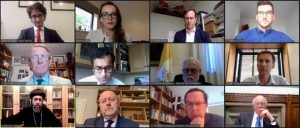China: Uighur Internment Camps
23 September 2020
The Lord Bishop of St Albans
To ask Her Majesty’s Government what assessment they have made of the condition of Uighur internment camps in Xinjiang in China.
The Minister of State, Foreign, Commonwealth and Development Office (Lord Ahmad of Wimbledon) (Con)
My Lords, there are reports of torture and overcrowding in detention centres in Xinjiang, where over a million Uighurs are extrajudicially detained. We have repeatedly condemned the abuses of human rights perpetrated against the Uighurs in Xinjiang and again call upon China to immediately allow UN observers unfettered access to the region and to end extrajudicial detention.
The Lord Bishop of St Albans [V]
I thank the Minister for his reply. The International Olympic Committee’s charter states that its goal is to
“place sport at the centre of harmonious development … with a view to promoting a peaceful society concerned with the preservation of human dignity.”
Given that the Chinese Communist Party’s treatment of the Muslim Uighur minority in Xinjiang contravenes the principles of preserving human dignity, will the Government consider holding the IOC to account by pushing for a review of its decision to hold the 2022 Winter Olympic Games in the People’s Republic of China?
Lord Ahmad of Wimbledon (Con)
My Lords, as the right reverend Prelate will know, any representation to the IOC would be a matter for the National Olympic Committee. The British Olympic Association operates independently of the Government. However, ensuring human dignity should be the approach of the Olympic committee or, indeed, any Government.
Baroness Bakewell (Lab) [V]
My Lords, I am co-chair of the All-Party Parliamentary Humanist Group. Does the Minister acknowledge the strength of feeling of people of all faiths on this matter? Will the Government persist in opposing the crimes of blasphemy and apostasy around the world, particularly in the case of Mubarak Bala, a humanist arrested for blasphemy in Nigeria?
Lord Ahmad of Wimbledon (Con)
I can assure the noble Baroness that the Government’s priority is, and will remain, to stand up against abuses of all human rights and for freedom of religion or belief anywhere in the world.
Baroness Northover (LD)
My Lords, the noble Lord will now be very familiar with the China Tribunal’s conclusions on the forced removal of organs from the Uighurs and others. Are the Government now taking this report seriously? Are the Magnitsky sanctions being considered for those who may be involved in this appalling practice?
Lord Ahmad of Wimbledon (Con)
My Lords, on the noble Baroness’s second point, I cannot speculate on designations. On the organ harvesting report, I have, as she knows, met with Sir Geoffrey Nice. We have also carefully considered the group’s report of 1 March. That report contains numerous disturbing allegations of serious human rights abuses, including sexual violence, torture, and forced DNA testing. After reviewing the situation this morning, I have again written formally to the World Health Organization
Lord Polak (Con)
My Lords, the appalling treatment of the Uighur Muslims by the Chinese regime is horrific. Yet China is expected to be re-elected to the Human Rights Council next month. Sadly, it seems that nothing can be done to halt the increasingly sinister influence of China within UN structures, seriously undermining the UN’s credibility. Will the Minister confirm that China is continuing to block the office of the UN High Commissioner for Human Rights from having a presence in China? Will he also confirm that we will not support China’s election to the Human Rights Council?
Lord Ahmad of Wimbledon (Con)
My Lords, on the issue of election to the Human Rights Council, I assure my noble friend we consider carefully all countries’ policies on standing up for human rights both internationally and domestically. On his earlier point, I spoke with High Commissioner Michelle Bachelet last week, and we have made the point directly to her that we continue to lobby for her unfettered access in Xinjiang.
In terms of the UN machinery generally, the United Kingdom has led on two statements—the only joint statements at the UN on Xinjiang—once last year and once this year in June at the Human Rights Council. I am intending to raise the issue in the UK’s national statement at the 45th session of the UNHRC, which is scheduled shortly.
Lord Alton of Liverpool (CB)
My Lords, I should mention I am vice-chairman of the all-party group on the Uighurs.
In the light of the near impossibility of arriving at a legal determination of alleged genocide or crimes against humanity in the Uyghur region, which Ministers in the other place have acknowledged, will the Minister join me in welcoming the new initiative of Sir Geoffrey Nice QC in setting up the Uighur tribunal? Will he confirm that the Government will do everything possible to co-operate with the tribunal, including providing evidence and agreeing to take seriously what will be a rigorous and impartial judgment when the process is completed?
Lord Ahmad of Wimbledon (Con)
My Lords, I am fully aware of the formation of this new inquiry, and we are looking at it carefully. I am discussing our approach with officials. We intend to attend the inquiry as we did the inquiry on organ harvesting.
Lord Collins of Highbury (Lab)
My Lords, I welcome the fact that the Minister has written to the WHO about forced organ harvesting. But it is not enough to write with the evidence; there needs to be concrete evidence. Would he argue with the WHO that this so-called self-assessment process needs to end, and that there ought to be independent verification of the harvesting of organs? Also, will he commit the Government to support my noble friend Lord Hunt and the noble Baroness, Lady Finlay, in making changes to the medicines Bill, which can address this issue and have concrete action to end this awful practice?
Lord Ahmad of Wimbledon (Con)
My Lords, on the latter issue of the medicines Bill, that will be discussed in your Lordships’ House; however, as a domestic piece of legislation, I do not think it is the right instrument with which to be looking at this issue, which is about international action. As for the World Health Organization, as I have said, we have taken steps. I will also seek a meeting with it to see what action can be taken. The evidence base is building, and it is clear that, if proven true, the abuses will be there for all to see. It is now important for the World Health Organization to consider the evidence carefully.
Baroness Smith of Newnham (LD) [V]
My Lords, returning to the original Question: could the Minister tell us what it would require for Her Majesty’s Government to analyse the treatment of the Uighurs as a potential genocide, and what it would take for them to raise that internationally?
Lord Ahmad of Wimbledon (Con)
My Lords, as I have already said, as well as raising this internationally, we are raising concerns bilaterally and directly, as my right honourable friend the Foreign Secretary has done, with the Chinese Foreign Secretary and State Councillor. We are also raising this through multilateral fora, through the third committee at the UN and the Human Rights Council. On the specific definition of genocide, the noble Baroness is aware of the Government’s position that this is something for tribunals or judicial authorities to assess.
Lord Mackenzie of Framwellgate (Non-Afl) [V]
My Lords, China has shown a callous disregard for the human rights of minority ethnic groups over a number of years. The evidence is now clearly overwhelming. Does the Minister not agree that the time is now right to instigate Magnitsky sanctions against those who perpetrate these indefensible wrongs against their own citizens? Words are clearly ineffective—this is time for decisive action.
Lord Ahmad of Wimbledon (Con)
My Lords, as I have already said, I cannot speculate on future designations, but I am pleased that we have now initiated, through my right honourable friend’s efforts, a formal procedure through the Global Human Rights Sanctions Regime, to ensure that those who abuse human rights are held to account.
Baroness Warsi (Con)
My Lords, does my noble friend agree that states that do not live by basic international human rights standards should not have unfettered access to international trade markets? Is he aware of the Uyghur Forced Labor Prevention Act, which was recently passed by the US House of Representatives? Do Her Majesty’s Government have plans for similar legislation to be introduced here in the United Kingdom?
Lord Ahmad of Wimbledon (Con)
My Lords, my noble friend raises an important point. She will also be aware that it was through our support and initiation of the Modern Slavery Act 2015 and our support for the evidence taken by a particular inquiry in Australia that we saw many companies changing their approach to trade initiatives, particularly in Xinjiang. We are looking at the US legislation carefully, and whatever the outcome of those discussions, I will write to my noble friend.
Baroness Deech (CB) [V]
My Lords, the tragedy of this is that we have seen it before—these steps towards genocide. It is even more tragic that the United Nations is impotent due to the position of China. The only thing I believe the Government can do is publish a list of those brands to which it is thought forced labour by the Uighurs is contributing and call on the population to boycott those brands and hopefully prevent their import.
Lord Ahmad of Wimbledon (Con)
My Lords, I have already detailed the action the Government have taken, and I believe it is for companies to make their decisions in light of that evidence.
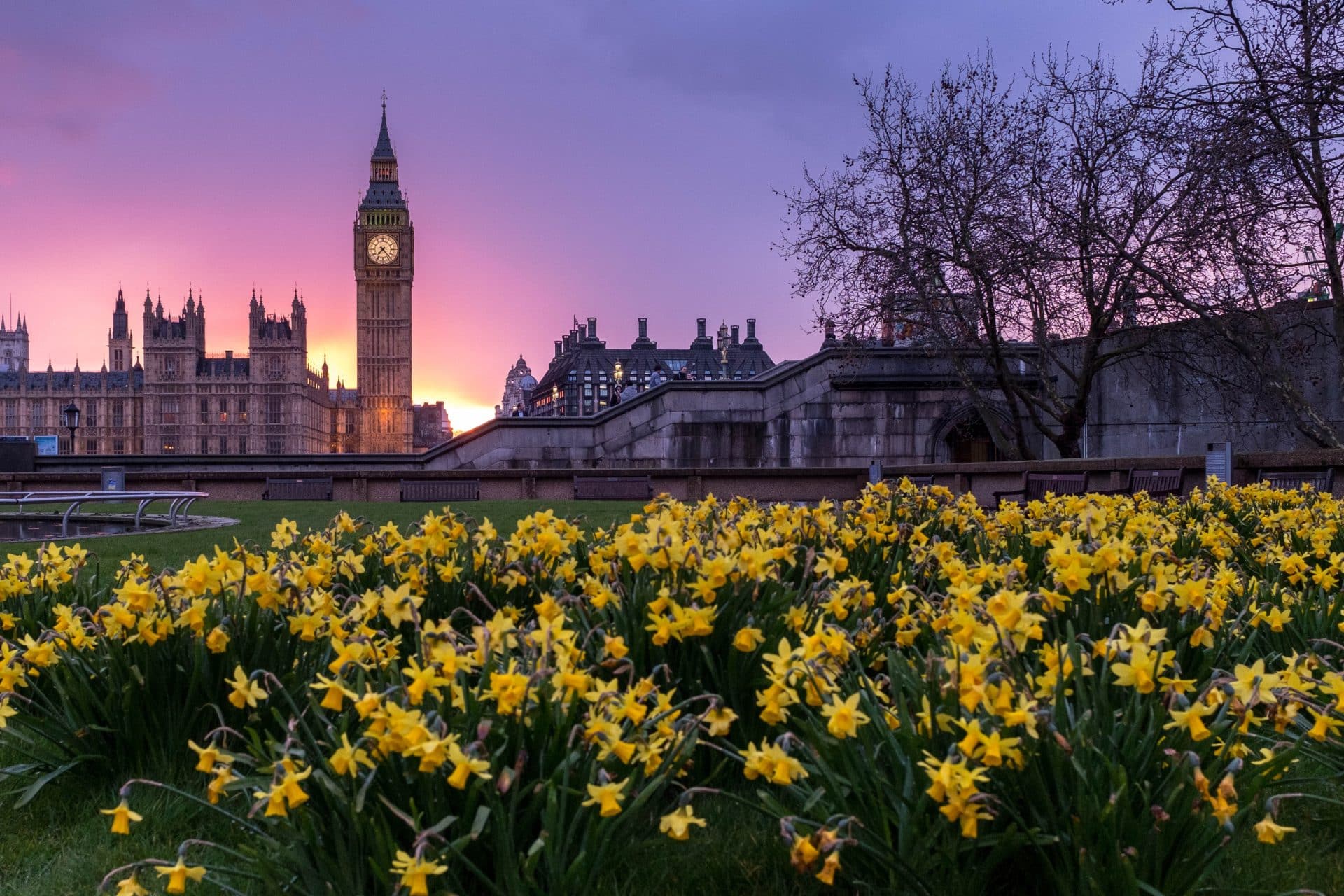
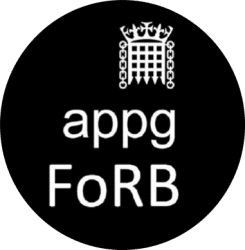

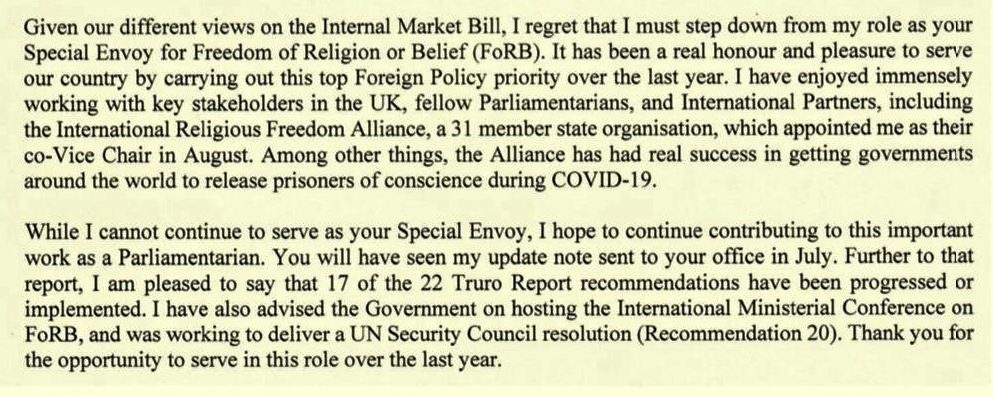
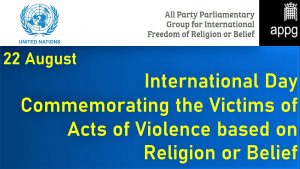 The International Day Commemorating the Victims of Acts of Violence Based is intended to provide a springboard towards an action plan that addresses the growing issue of violence based on religion or belief. The establishment of such a day is not the end goal in itself. It is just the beginning of a larger campaign that ultimately aims to put an end to violence based on religion or belief whenever and wherever it occurs.
The International Day Commemorating the Victims of Acts of Violence Based is intended to provide a springboard towards an action plan that addresses the growing issue of violence based on religion or belief. The establishment of such a day is not the end goal in itself. It is just the beginning of a larger campaign that ultimately aims to put an end to violence based on religion or belief whenever and wherever it occurs.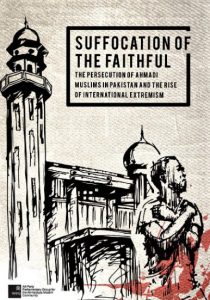
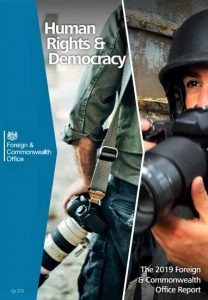 The
The 